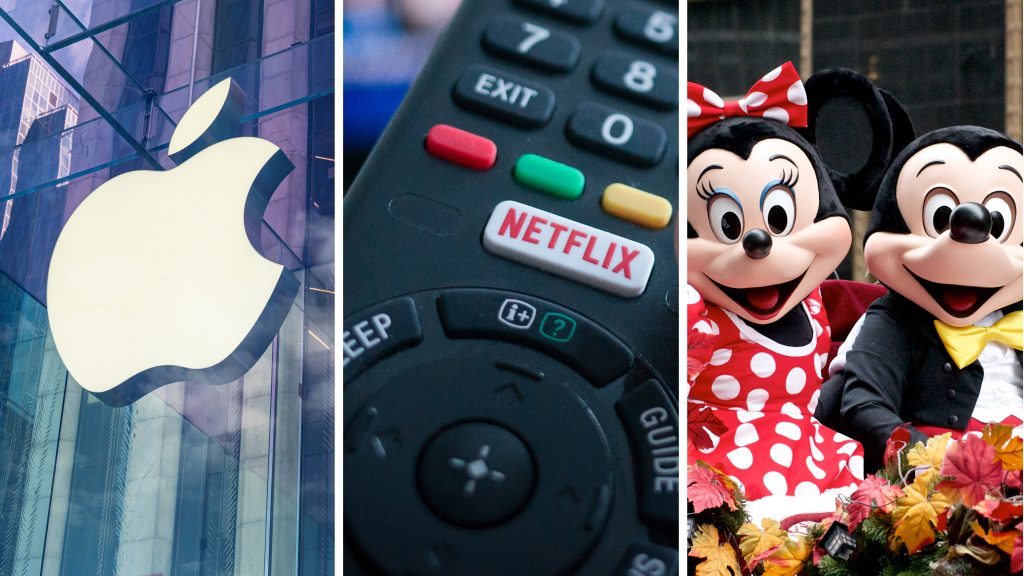3 top business leaders to emulate in 2025: replicate industry-defining success
Wednesday, January 29, 2025 - Dignify

As a leader, you bear a lot of responsibility for the success of your team and your organization – the influence you exert and decisions you make can move mountains and make amazing things happen. Rounding off the first month of the new year, with resolutions set and goals in full swing, many leaders are looking for inspiration to draw from so that they can be the best asset to the people they support.
One of the best things you can do to elevate your performance is learn from the example and experience of others who have already walked the paths you are treading towards. In this article, we are going to take a deeper look at three examples of outstanding leaders in today’s business environment who are defining the present and shaping the future of what strong leadership looks like. Let’s take a look!
Tim Cook
Tim Cook is the CEO of Apple since August 24, 2011, when the late Steve Jobs resigned his position and tragically passed away. During his time as a leader, Cook has defined generations of smart electronics and shattered definitions of what’s possible, guiding Apple to become the first American company to reach a $1 trillion dollar valuation. Recently, it became the first company in the world to reach a valuation of over $3 trillion dollars and is now well on it’s way to $4 trillion. Needless to say, Cook knows what he’s doing when it comes to leadership. Here are just some of the many characteristics that define his style of leadership:
- Practicing empathetic leadership
Tim Cook made empathy a priority to create a workplace that helps people feel valued, understood, and unified. As a result, Apple has become a company renowned for its high degree of employee engagement, remarkably low turnover, and their refreshingly low-stress working environment compared to competitors. Cook set the example during the pandemic, encouraging remote work and providing resources to support Apple personnel throughout the crisis.
- Listen actively, delegate effectively
Cook has been known to be an attentive listener when other people speak. He practices active listening skills, carefully taking in their inputs and acknowledging their point before making a response. He sets his team of executives up for success by delegating effectively and allowing them to lead their parts of the business. Examples of people who have transformed the company during Cook’s tenure include Craig Federighi (SVP – Software Engineering) and Greg Joswiak (SVP – Worldwide Marketing).
Reed Hastings
Reed Hastings is the co-founder and executive chairman of Netflix, another one of those companies that needs no introduction. Since Netflix was founded in 1997, it has become the biggest streaming service in the world, closing in on 270 million global paid memberships. It has pioneered the era of streaming services and ushered in a whole new era of entertainment. Hastings’ leadership has been defined by:
- Consistent feedback with candor
At Netflix, feedback isn’t an option, it’s a must. In No Rules Rules, Erin Meyer writes that failing to speak up when you have a disagreement or helpful feedback with a colleague is equivalent to disloyalty to the company. Hastings created an environment where honesty is the norm, manifesting in the form of a constant stream of constructive feedback. Hastings practiced a strict “no jerks” policy to help the radical-candor environment function as intended.
- Trust generously
Reed Hastings implemented a strong culture of transparency, trusting those around him critical information, no matter what. Whether it’s about company performance, decisions, or challenges, Hastings sets out to build a shared understanding among his team about where they currently are and where they need to go. For Hastings, secrecy is not an option if you want to earn employee buy-in.
Bob Iger
Bob Iger has been the CEO of Disney from 2005-2020, and 2022-present, defining entertainment for an entire generation of children and families since his ascent to the position. Under his leadership, Disney has evolved massively and has been characterized by massive acquisitions including Marvel Entertainment and Lucasfilm and new services like Disney+. Here are some principles Iger has stuck to in his 17 years of transformative leadership, as outlined in his book The Ride of a Lifetime: Lessons Learned From 15 Years As CEO Of The Walt Disney Company, a reflection on his career:
- Pursuing perfection, with a basis in fairness
Roone Arledge, former head of ABC Sports and one of Bob Iger’s mentors, exerted a great deal of influence on Iger’s style of leadership. Iger admired his constant pursuit of perfection, adopted the mentality, and encourages the same among his teams. In doing so, Iger makes a point to emphasize fairness, decency, and forgiveness for people who make mistakes, giving them the opportunity to rectify it and get back on a trajectory for success.
- Remaining grounded and humble
Reflecting on his time as CEO, Bob Iger stresses that leadership should not breed overconfidence or arrogance, especially for those who have spent years at the top. Iger warns seasoned leaders not to become dismissive or stop listening to others, as this can harm a leader’s ability to encourage necessary innovation and growth. According to Iger, the most valuable lesson is to remain authentic and humble, recognizing that regardless of one’s position, they are still the same person they’ve always been.
The bottom line
Tim Cook, Reed Hastings, and Bob Iger are the faces of companies that have transformed the world as we know it. They have defined their industries, reached heights thought impossible, and continue to shape the future of how we interact with the world. Each of them have their own unique philosophy on leadership that’s worth looking into as you seek inspiration for the new year.

